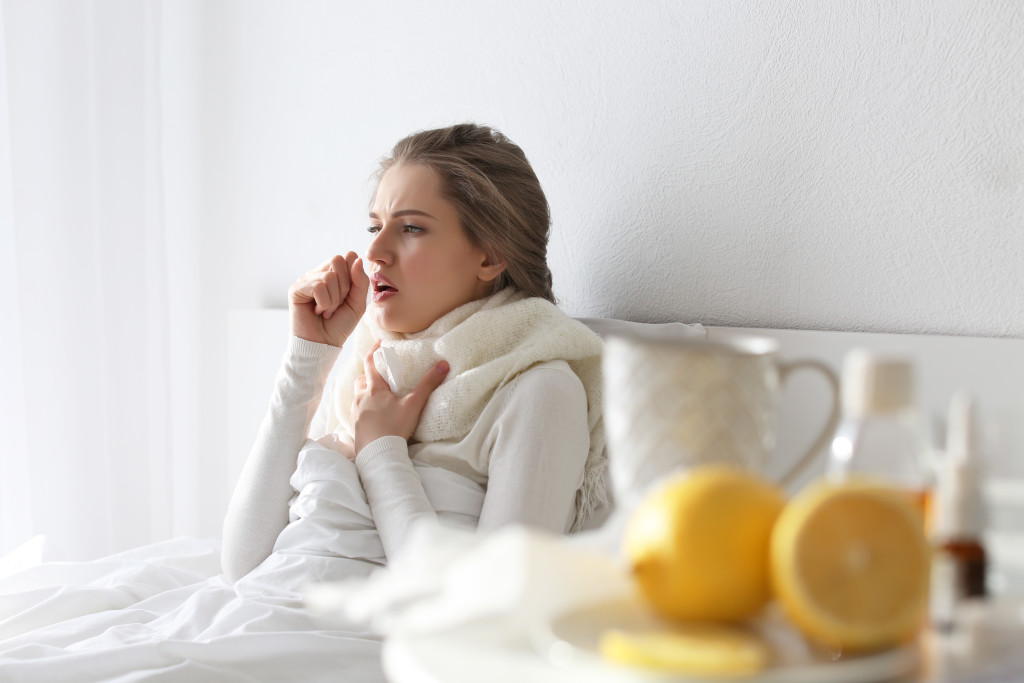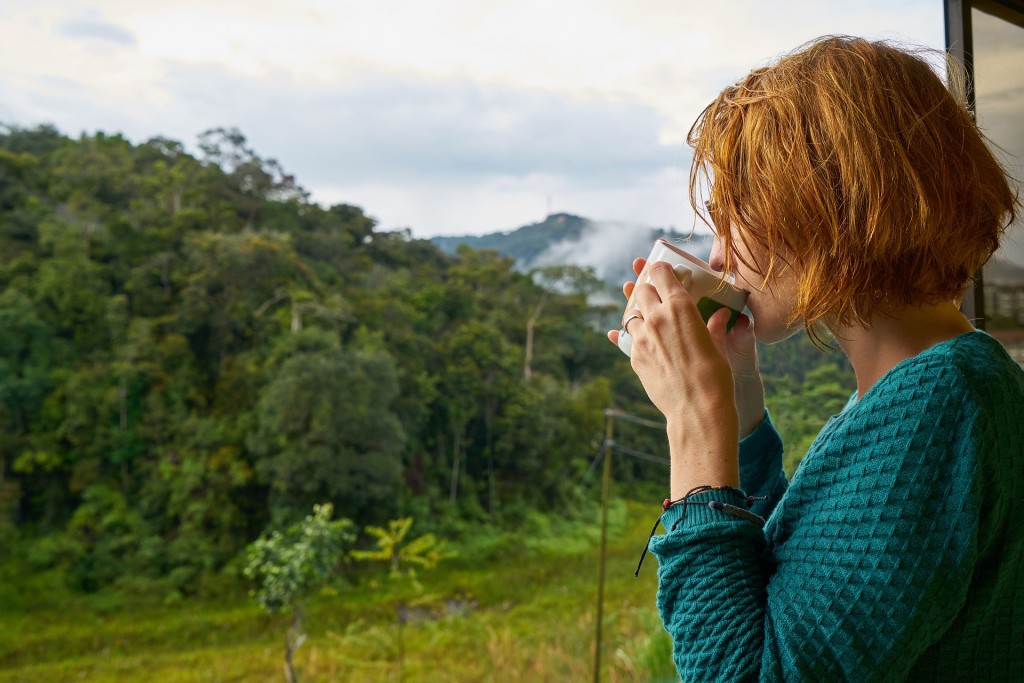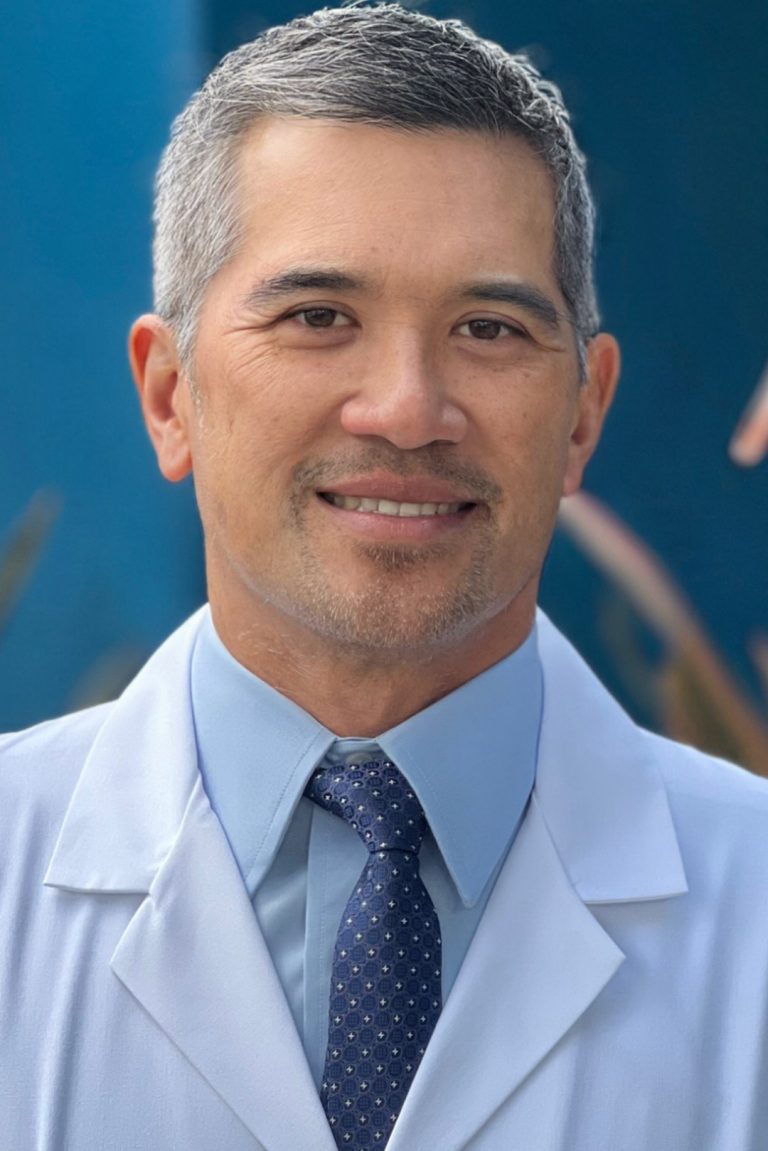What the Heck is this Virus?
It is a new strain, but NOT a new virus! In fact, Over the last 70 years, scientists have been studying coronaviruses, considered zoonotic, because they are transmitted between animals and humans. SARS-CoV, the scientific name of this strain, is believed to be a new strain that was transmitted from civet cats to humans. Several other known coronaviruses in animals that have not yet infected humans.
The Fear Factor:
It is common for people who spend a lot of time in front of the screen to feel fear and anxiety about the Coronavirus pandemic. Symptoms could include rumination about the virus, fear of catching the virus even if it isn’t in their area, difficulty sleeping, and increased efforts to stay healthy. Anxiety interferes with their ability to function altogether.
First Symptoms:
Symptoms of fever, sneezing, and cough are similar to those of the flu. It may be hard to tell the diseases apart without antibody testing. Pneumonia has been prevalent in coronavirus patients, even when their cases are not severe. There may be people with no symptoms or with mild ones that do not require medical attention.
How Bad is the Outbreak?
The scientific evidence suggests so far that although the virus poses a serious public health concern, you are unlikely to get infected outside of endemic areas of China, Italy, Iran, and South Korea.
Prevention (similar for all viruses):
- REMEMBER: Most healthy people don’t need masks. Hoarding them may contribute to shortages for health workers who do need them;
- Wash your hands often with soap and water for at least 30 seconds, especially after going to the bathroom; before eating; and after blowing your nose, coughing, or sneezing;
- If soap and water are not readily available, use an alcohol-based hand sanitizer with at least 60% alcohol. Always wash hands with soap and water if your hands are visibly dirty;
- Avoid touching your eyes, nose, and mouth with unwashed hands;
- Avoid close contact with people who are sick;
- Stay home when you are sick, and keep children home from school when they are sick;
- Cover your cough or sneeze with a tissue, then throw the tissue in the trash.
- Clean and disinfect frequently touched objects and surfaces, especially public ones, using a regular household cleaning spray or wipe;
- Avoid the aisle seat when traveling (twin article – How do we get sick when traveling coming soon);
- Hydrate, hydrate, hydrate
Who is most at risk of infection?
Both the Coronavirus and influenza are more dangerous to people older than 65 or those with a weak immune system due to chronic diseases. In a recent Chinese study, nearly 15 percent of infected people who died or had complications were over 70 to 80 years old. But, indeed, the death rates first reported in China were also due to hospitals not being prepared and overwhelmed with cases.
It appears that young children can become sicker in a similar way to other respiratory viruses, while older children tend to have mild or no symptoms.
Death rates among men in their late 40s and older, have exceeded those among women. The discrepancy is believed to be because Chinese men who smoke often have compromised lung function.
Which virus is more contagious, the Flu or Corona?
In both the flu and the Coronaviruses, people may be contagious before symptoms develop, making it difficult to control the spread of the virus. Nobody knows how many people infected with the Coronavirus have only mild symptoms or none at all.
So far, the new Coronavirus seems to be more contagious than most strains of the flu, and roughly as infectious as the previous flu pandemic.
For example, the 1918 flu pandemic had a fatality rate of about 2 percent. Early estimates of the Coronavirus death rate are also around 2 percent. But a new New England Journal of Medicine report this past week on the 1,099 cases from China, found a lower rate of death of 1.4 percent.
How long to show symptoms?
The incubation period is usually between five and seven days when symptoms appear. Some illnesses, such as influenza, have a short incubation period of two to three days. Officials at the CDC estimate that the Coronavirus has an incubation period of two to 14 days. Symptoms include fever, cough, and difficulty breathing or shortness of breath. But mild cases may simply resemble the flu or a bad cold, and people may be able to pass on the new Coronavirus even before they develop apparent symptoms.
Which virus makes you sicker, The Flu or the Corona?
According to the CDC, as of February 22nd, there have been approximately 32 million cases of flu in the United States, 310,000 hospitalizations, and 18,000 flu deaths. Hospitalization rates among children and young adults this year have been high. Most people recover in less than two weeks, and sometimes in just days.
By contrast, about 70 people in the United States have been infected with the Coronavirus, with two deaths reported as of March 3rd.
What should I do if I catch it?
Antiviral drugs are a treatment option. Check with your Akasha practitioner immediately if you are at high risk of severe viral disease complications. The CDC has a helpful list of high-risk factors for the flu and other viral diseases, including now the Coronavirus. (https://www.cdc.gov/flu/treatment/whatyoushould.htm#box)
Symptoms can include feeling feverish or having fever, cough, sore throat, runny or stuffy nose, body aches, headache, chills, and fatigue.
What treatments are available?
Although there is no approved antiviral drug for the Coronavirus so far, the scientists in the US and abroad have recommended the same treatment used for any viral illness:
- Rest
- Antivirals in moderate to severe cases
- Anti-fever and pain meds
- Plus, plenty of fluids to avoid dehydration
For people at high risk of serious complications, early treatment with an antiviral drug can decrease the severity of the symptoms and avoid hospitalization. The antiviral drug Tamiflu (oseltamivir) works best when used as soon as test-positive flu symptoms appear. If started within two days of flu symptoms, antiviral drugs can lessen flu symptoms by about one to 2 days. Prompt treatment should be started right away for suspected flu infection and those at high risk of severe flu complications, such as people with asthma, diabetes, gestational diabetes, heart disease. Or cancer, among others, should be initiated immediately
Is your Cell Phone a source of contamination?
YES! As the virus spreads, remembering all possible sources of contamination is crucial, including your CELL PHONE. A 2011 study at the London School of Hygiene & Tropical Medicine found fecal matter in at least 1 out of 6 smartphones. We take out phones with us everywhere, including the bathroom. We put it down on counters, sinks, on top of toilet flushing tanks… then we put the phone right on our faces and touch our lips, mouths and ears.
How to clean your phone
According to Apple, do not use liquids or disinfectants, instead only use recommended products (detailed list) of how to clean your phone depending on the model. Other ways (depending on make and model):
- Microfiber cloth
- Isopropyl rubbing alcohol
- Water
- Cotton swabs
- Cleaning gloves
Akasha’s approach: Don’t panic — start to prepare
DO NOT PANIC! And do not engage in fear tactics. Instead, mindfully prepare. No different than how you’d prepare for, say a storm. Be KIND to all those around you. Do not discriminate as this virus does not choose what culture to hit first. Stock some extra food and cleaning supplies in case you or a family member get sick and need to stay home. Shelf-stable foods such as beans and rice are good options. Also, utilize your freezer for preserving foods.
- Have efficacious supplements and medications readily available such, Akasha Naturals Immune support, Active Immunity, garlic capsules (allicin), and Antiox Restore.
- Consider a High dose Vitamin C via Meyers cocktail. Research in China has pointed to the effectiveness of vitamin C to treat the virus;
- Stay very well hydrated. Use regular water, coconut water, tea;
- Think about a backup plan if schools were to close during an outbreak;
- If you take a daily prescription medication, have as much of supply on hand as possible;
- Call Akasha the moment you feel any cold symptoms coming in;
- Ask your employer about a work-from-home option. If there’s a widespread virus in your community, you may want to avoid activities such as shopping, and instead distance yourself from others.
Children and Flu Antiviral Drugs
Antiviral drugs are usually safe and effective in children as the risk of respiratory complications requiring antibiotics and hospitalization can also be lessened. For treatment, antiviral drugs should preferably start within 2 days after becoming sick and taken for 5 days. Oseltamivir (Tamiflu) is recommended by the CDC and the American Academy of Pediatrics for early treatment or prevention in patients 3 months and older.
How long should antiviral drugs be taken?
The duration of the antiviral medication depends on the type of drug being used. Oseltamivir and zanamivir are usually taken twice daily for 5 days. However, hospitalized individuals may need treatment for longer than 5 days.
Vaccine:
The World Health Organization (WHO) has recently indicated that a vaccine may be tested within a few months, but it will take at least a year or two to become available for widespread use. Experts are urging people to get the flu vaccine because If there is a Coronavirus outbreak in the United States, hospitals will need all the resources available. But given the at best 40-50% efficacy of the flu vaccine and its questionable risks, I recommend it only for those at risk of acquiring a more severe case of flu or the Coronavirus. These include individuals over the age of 65, those with medical conditions, such as discussed above, a history of pneumonia or other respiratory conditions such as asthma, immunocompromising diseases, cardiovascular diseases, diabetes, gestational diabetes. And cancer, among others.
Pregnancy:
Although it is known that the flu virus is dangerous for pregnant women, whether the Coronavirus poses a severe threat to pregnant women is not known at this time. But I advise taking all the necessary precautions.
Tamiflu is recommended for the treatment of pregnant women because when compared to other prescribed antiviral medications, studies on Tamiflu suggest that it is safe and beneficial during pregnancy.
Travel:
Avoid traveling to endemic areas. The CDC providestravel notices based on the assessment of the potential health risks of exposure in certain areas. Here are travel notices recommendations https://www.cdc.gov/coronavirus/2019-ncov/travelers/index. And, if possible, postpone all cruises until further notice. But again, live as much of a normal life as possible. We should never give in to fear. Fear begets fear.
ABOUT THE AUTHOR: Dr. Edison de Mello is board certified integrative Physician by the American Board of Integrative Medicine and also as a psychotherapist by the California Board of Behavioral Sciences. He is the founder and Medical Director of the internationally renowned Akasha Center for Integrative Medicine in Santa Monica, CA. His motto that defines Akasha is “To Meet our Patients Before We Meet their Disease.” His vision to help change both the way medicine is practiced and how supplements are manufactured inspired him to Co-found Akasha Naturals.

















